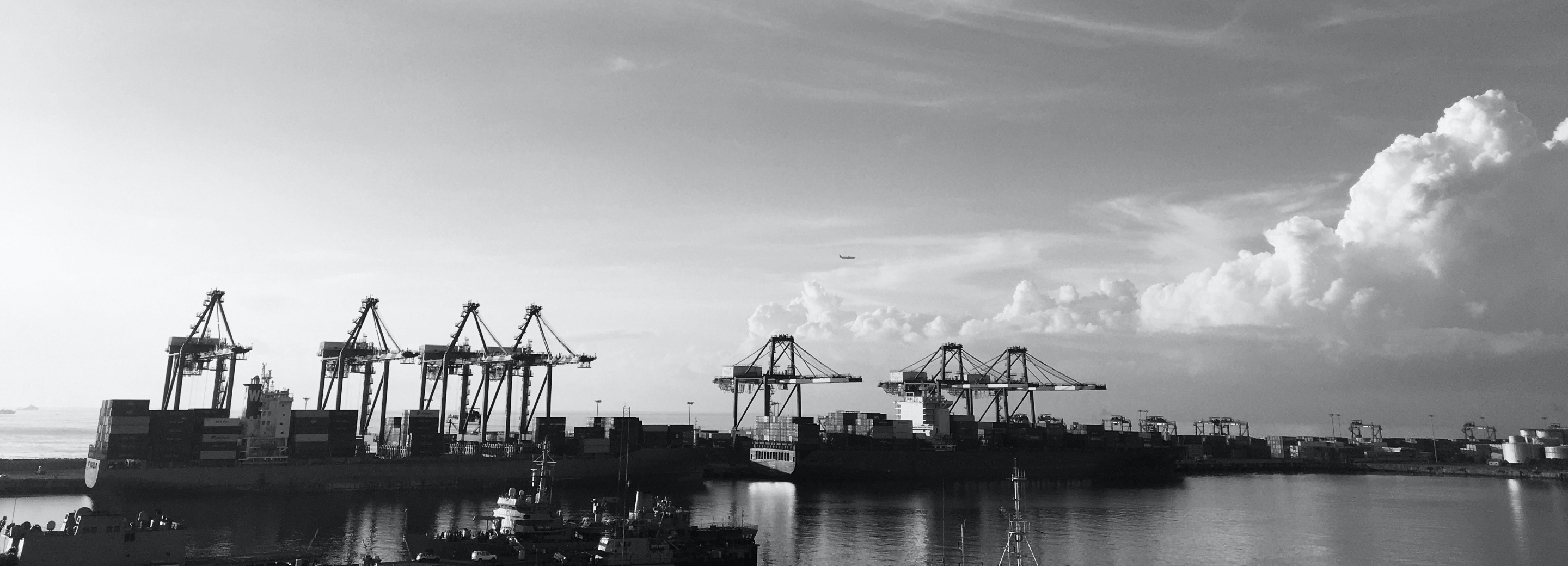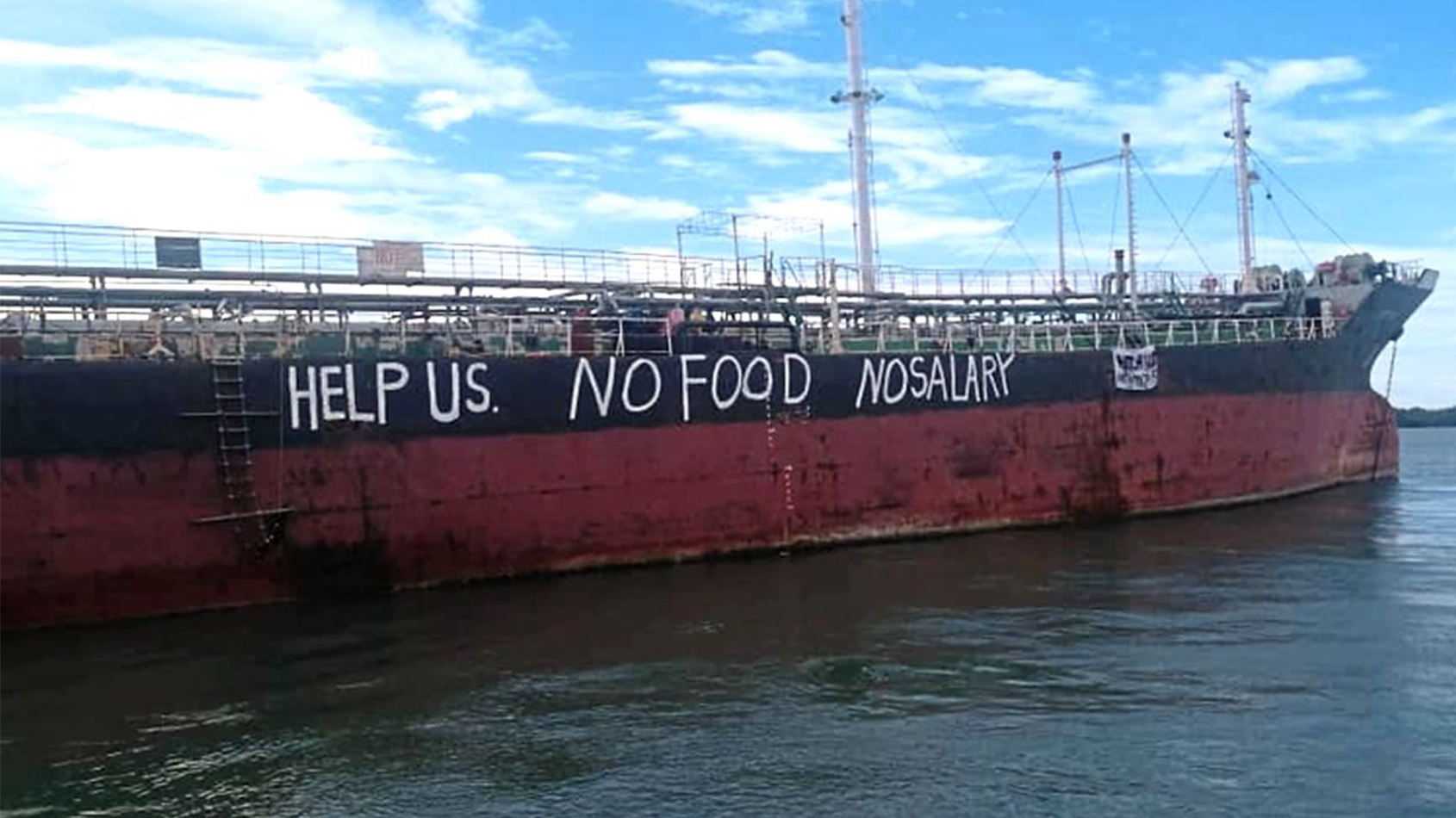
It was an image that shocked many. A ship with the desperate scrawls of a desperate crew scribbled across the hull of what had become their floating prison, as the tanker bobbed aimlessly in the warm waters of the South China Sea.
Now, after at least two months of anxious waiting for flights and government permissions, the Vietnamese crew of the MV Viet Tin 01 are finally home with union support.
The case of the 12 seafarers onboard the Viet Tin 01 came to the attention of the International Transport Workers’ Federation (ITF) and its local affiliate, the National Union of Seafarers Peninsular Malaysia (NUSPM), in June.
NUSPM Executive Secretary Ikmal Azam Thanaraj Abdullah said that the ship had been abandoned by its Vietnamese owner, leaving the crew stranded off the coast of Malaysia without food, water or fuel.
“The lack of fuel alone left the crew without cooling in the soaring daytime heat, and without critical navigational lights during the nights,” said Ikmal Azam Thanaraj Abdullah.
Ikmal Azam Thanaraj Abdullah said that when the NUSPM heard of the crew’s plight began providing food and fresh water, and there was a contribution from the Vietnamese embassy in Kuala Lumpur.
“The crew were in a terrible state. They were thirsty, hungry, and in great risk of being hurt or drowned if another vessel collided with them while they slept due to the lack of lighting onboard. This was an accident waiting to happen for the stricken crew on board.”

“Working with the Malaysia Maritime Department and the relevant agent, we were able to get clearance to bring the crew onshore. Covid-19 test were conducted and the results were all are negative.”
The ITF’s Asia/Pacific Contact Network coordinator and Hong Kong-based Inspector, Jason Lam, said that the ITF assisted when the crew came ashore.
“When we got them ashore in early September, we addressed their immediate welfare needs,” said Lam.
Lam said that a shipowner would typically cover the cost of repatriation, including accommodation and food, while seafarers waited to board flights home at the end of their contracts. But in cases of abandonment, the shipowner reneges on this responsibility, and crew are left to find the money needed to pay for these essential costs. This is made even more difficult because employers often stop paying the crew their wages for months before they finally abandon the ship, he said.
Lam explains “Firstly it was the Covid-19 pandemic followed by the issue of a new owner of the ship employing the crew. The deal did not go through in the end, and the crew was left without a responsible party. The ship was again put up for sale, but, that too did not eventuate.”
The ITF covered the costs of the seafarers’ accommodation and meals.
“That’s where the ITF was very helpful,” said Lam, “We were able put the crew up in a hotel in the southern Malaysian city of Johor Bahru for a number of weeks while everyone was trying to find a solution to get them paid and get them home.”
The crew returned to Vietnam earlier this month.
As for their wages, Ikmal Azam Thanaraj Abdullah from NUSPM said “The crew were very happy, but the only thing is they did not get their salary yet. The ship might be sold as scrap, and from the proceeds they might be able to recover a portion of their salary.”
Reflecting on the case from Hong Kong, Lam said the 12 Vietnamese seafarers are just the latest group in the Asia region to be unfortunate enough to experience what the organisation calls a ‘rising tide’ of abandonment cases.
“Whether it is happening in the Arab World, or the Indian Ocean or here in Asia – abandonment cases are becoming more common because ship owners do not want to pay the cost of getting seafarers home and replacing them with crew during the crew change crisis. ‘It’s too hard’,’ ‘it’s too expensive’, they say. Crew are paying the cost for that attitude. These owners should be ashamed,” said Lam.
